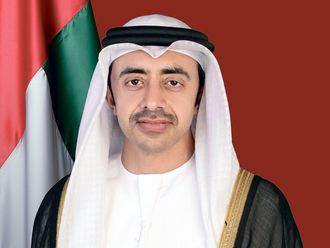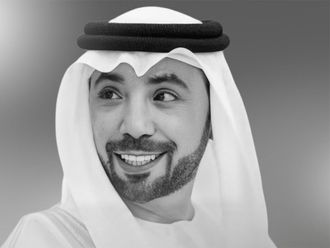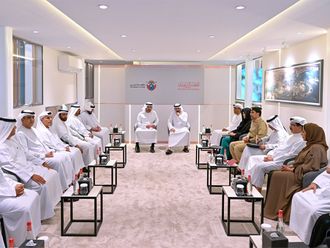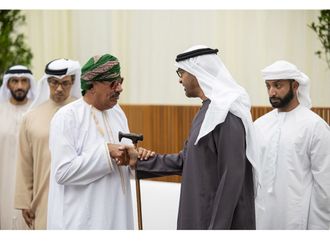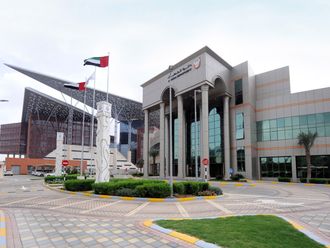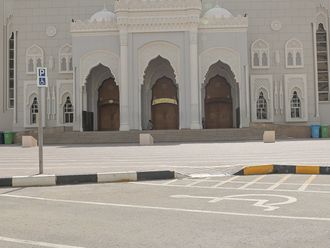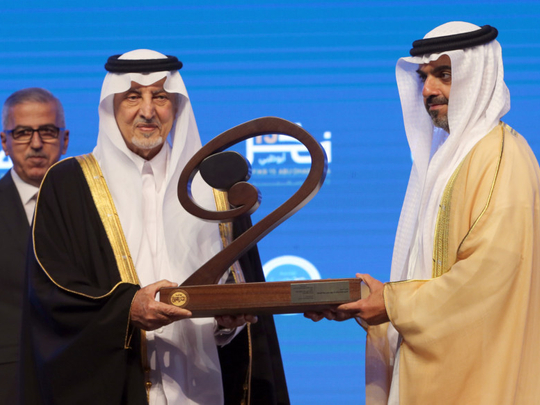
Abu Dhabi: With the Arab world facing regional and international challenges, the need for unity and integration among Arab states will be vital in addressing those challenges, Arab leaders said at a conference held in Abu Dhabi on Monday.
The leaders, who included Dr Anwar Gargash, UAE Minister of State for Foreign Affairs, Dr Abdul Latif Bin Rashid Al Zayani, Secretary-General of the GCC, and Ahmad Abu Al Geit, Secretary-General of the Arab League, were speaking at the annual FIKR15 conference organised by the Arab Thought Foundation — a non-governmental organisation that works to promote Arab culture and values.
The theme for this year’s conference was focused on Arab integration and unity, with the UAE and GCC highlighted as a successful model for unifying Arab nations to work on their best common interests.
“Today, [Emirati] citizens feel that they are part of a strong political system that maintains their interests and works on its continued development. The UAE has set an inspirational example in unity and development in the Arab world due to its visionary leaders who were determined and confident in fulfilling their aspirations,” said Dr Gargash.
“Unity is not based on emotions and slogans only, but on constant hard work and efforts and realistic projects that impact the lives of citizens. In the UAE we believe that unity is vital and as Arabs we are privileged compared to other countries and societies as we have all the necessary basics that contribute to integration and solidarity,” he added.
Dr Gargash also noted the UAE’s success in integrating more than one million non-Emirati Arabs in the country.
“The UAE hosts one and a half million Arabs who live inclusively and cohesively in the country,” he said.
“The success of unity remains in its ability to stay defiant in the face of crises and disasters and to not give up easily. The UAE is a prime example of a country that is united despite all the historical problems and obstacles it came across,” he added.
Dr Al Zayani lauded the bloc’s success and maintained that the GCC represents a strong basis for achieving Arab integration.
“On the political level, the GCC has become an oasis for security, stability, safety and prosperity in a region that is witnessing a lack of security and the development of extremist ideologies,”
“The GCC enjoys an ambience of peace that enhances development and economic plans, investments, work opportunities for expatriates, and providing financial assistance to other countries,” he added.
Al Zayani said that the GCC was continuing to work towards further integration between member states.
“The GCC is very keen on speeding up procedures towards integration in all facets and is currently working on mechanisms to follow up on decisions that require further work,” he said.
Al Geit said that Arab unity and strength must be based on principles of sovereignty, respect, and tolerance of others.
“The founders of our countries were visionary leaders and adopted methodologies based on state sovereignty and today we must follow suit and work on coordinating between countries to enhance concepts of state sovereignty, security, safety, stability, and growth,” he said.
“The main priorities must include maintaining the identity of Arabs to be more tolerant, forgiving, inclusive, and to have respect for other races and religions. It is also important to adopt an intellectual awakening to educate the people to make them critical, creative, and cultural thinkers,” he added.
Prince Khalid Al Faisal Al Saud, Governor of Makkah Province in Saudi Arabia and chairman of the Arab Thought Foundation, said that Arabs were facing a critical moment in their history with regional conflicts and extremism, and that it was important to develop a framework of policies in response.
“The guests at the conference represent a promising and bright outlook to develop and put in place a road map for an Arab integration that will help the Arab nations in such critical times. The religion of Islam is being distorted [by extremists], Arabs have become displaced and refugees, ignorant people claiming to be scholars are disseminating twisted and perverted thoughts and ides that incite violence and massacres,” he said.
“We have reached a very critical stage, where our nations and people in the Arab region are suffering from the ongoing destruction which calls for rapid action to be taken to stop our countries from being conquered, occupied, and divided. It is therefore necessary that the project for Arab integration which is based on adopting new methodologies is accomplished and implemented,” he added.


